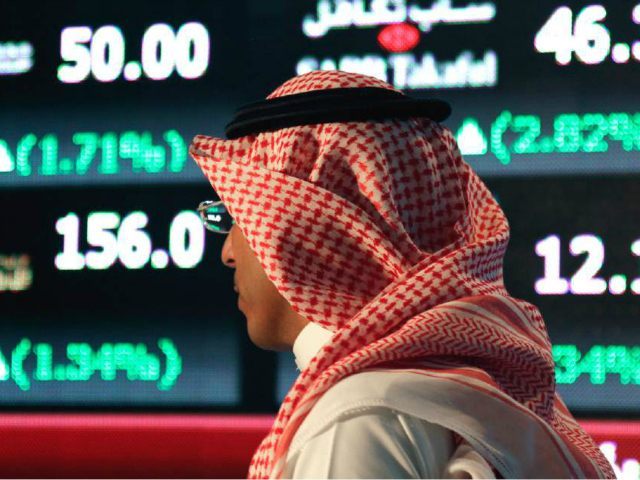CNN warns not to “hold your breath” waiting for Saudi Arabia to trim back oil production and stabilize prices.
“We are not going to accept to withdraw our production to make space for others,” Saudi Aramco chairman Khalid al-Falih said at the World Economic Forum in Davos, at a panel hosted by CNN’s John Defterios.
That sounds like a thinly-veiled shot at the latest entrant to the oversupplied oil market, Iran. He might also have been sniping at U.S. shale oil drilling companies, which the Saudis regard as unwelcome newcomers, and have been trying to destroy.
The chairman went on to say Saudi Arabia’s position as the world’s top crude-oil exporter has been “earned,” and “we are not going to leave that position to others.”
Al-Falih qualified his position slightly by suggesting that “if other producers are willing to collaborate, Saudi Arabia will also be willing to collaborate.” There will probably not be many takers, with oil down to $27 a barrel.
The Saudi Aramco chairman allowed that the short-term picture for oil is “very bleak,” but also dropped some unsubtle hints that Saudi Arabia is better positioned to ride out cheap oil than most of its competitors – an important message to send, when some of those competitors might be thinking the Saudis will give ground on supply to restore their lavish income stream.
According to the Wall Street Journal, al-Falih’s defiant remarks were one of the reasons oil prices dropped again on Monday morning.
International Business Times suggests the Saudis might be willing to sell off shares in the state-owned Aramco, which is worth about $1 trillion, to get through the current crisis. As al-Falih put it, Saudi Arabia was unwilling to sell off its immense oil reserves, “but the company’s ability to produce from the reserves is being studied.”
IBT notes privatization of the Saudi oil companies has been discussed for several years prior to the market crash, with especially strong support from Prince Muhammad bin Salman, who declared himself “personally enthusiastic” about the idea of selling Aramco shares.
On the other side of the oil war sit American shale oil drillers, whose success is one reason for the glut of oil currently dragging down their bottom lines. The Saudis might be hoping they can outlast the shale industry, but the UK Telegraph on Sunday quoted analyst Daniel Yergin of IHS Cambridge Energy Research Associates saying this outcome was unlikely.
Speaking from Davos, Yergin noted that hedge funds and private equity groups have some $60 billion ready to buy up distressed shale drillers, anticipating the day oil prices rebound.
“The management may change, and the companies may change, but the resources will still be there,” he promised the Telegraph, noting that shale drilling projects can be restarted much faster than other projects – a matter of days and millions spent, versus years and billions spent to restart deep-water drilling operations. If the Saudis and their partners thought they could drown the U.S. shale industry in cheap oil, they appear to have miscalculated.
As for the oil fighters most likely to hit the canvas for a full 10-count in this market slugfest, Yergin pointed to Venezuela (he called it “beyond the precipice” and “completely broke”) and Iraq. The war against ISIS might boil down to whether Iraq’s economy collapses before the Islamic State’s does.

COMMENTS
Please let us know if you're having issues with commenting.